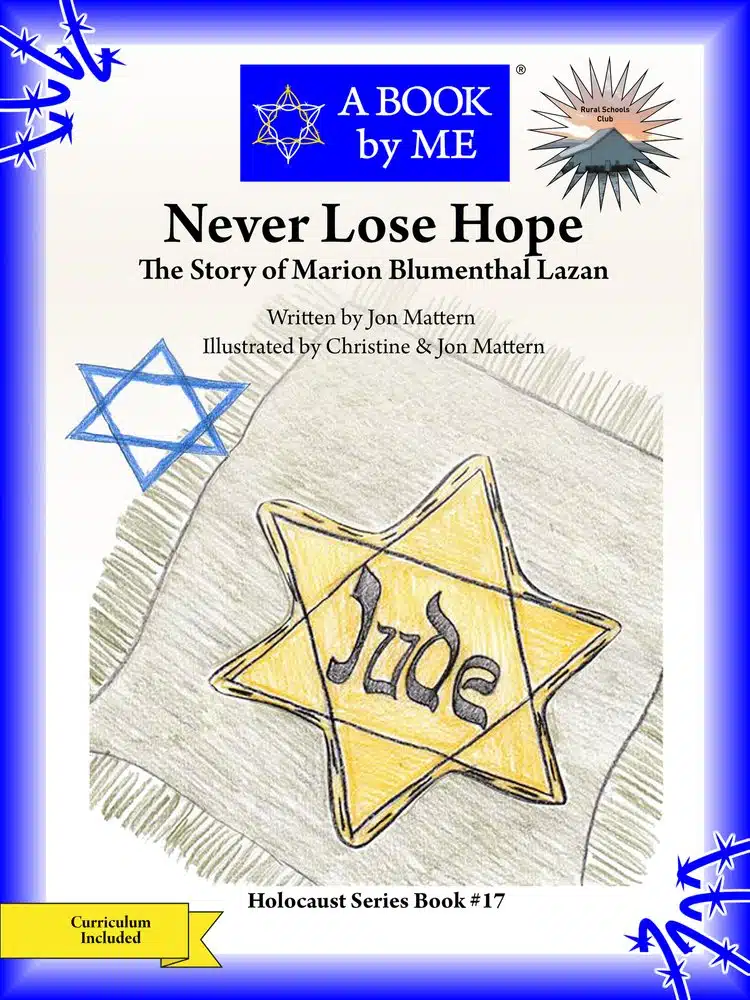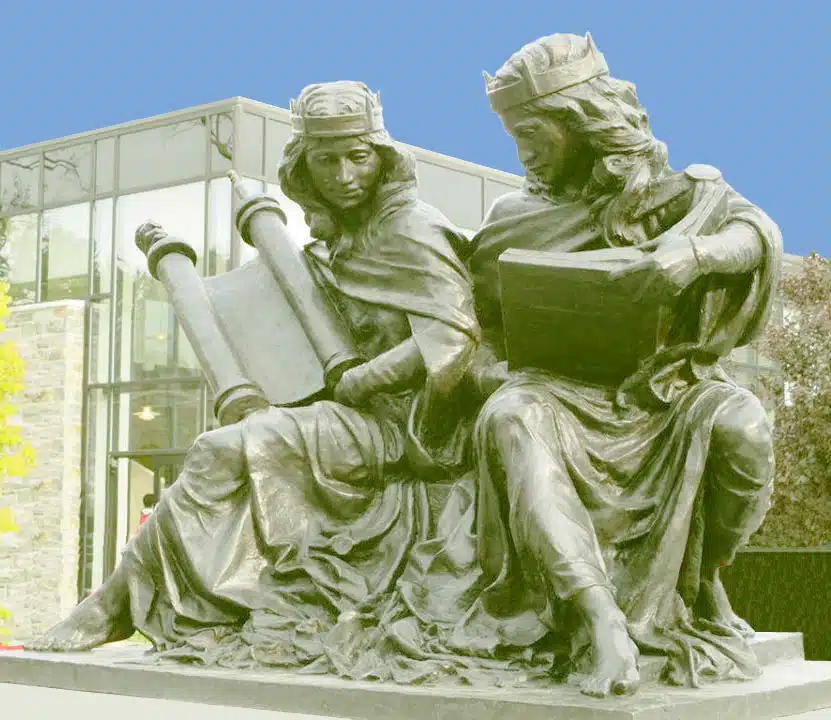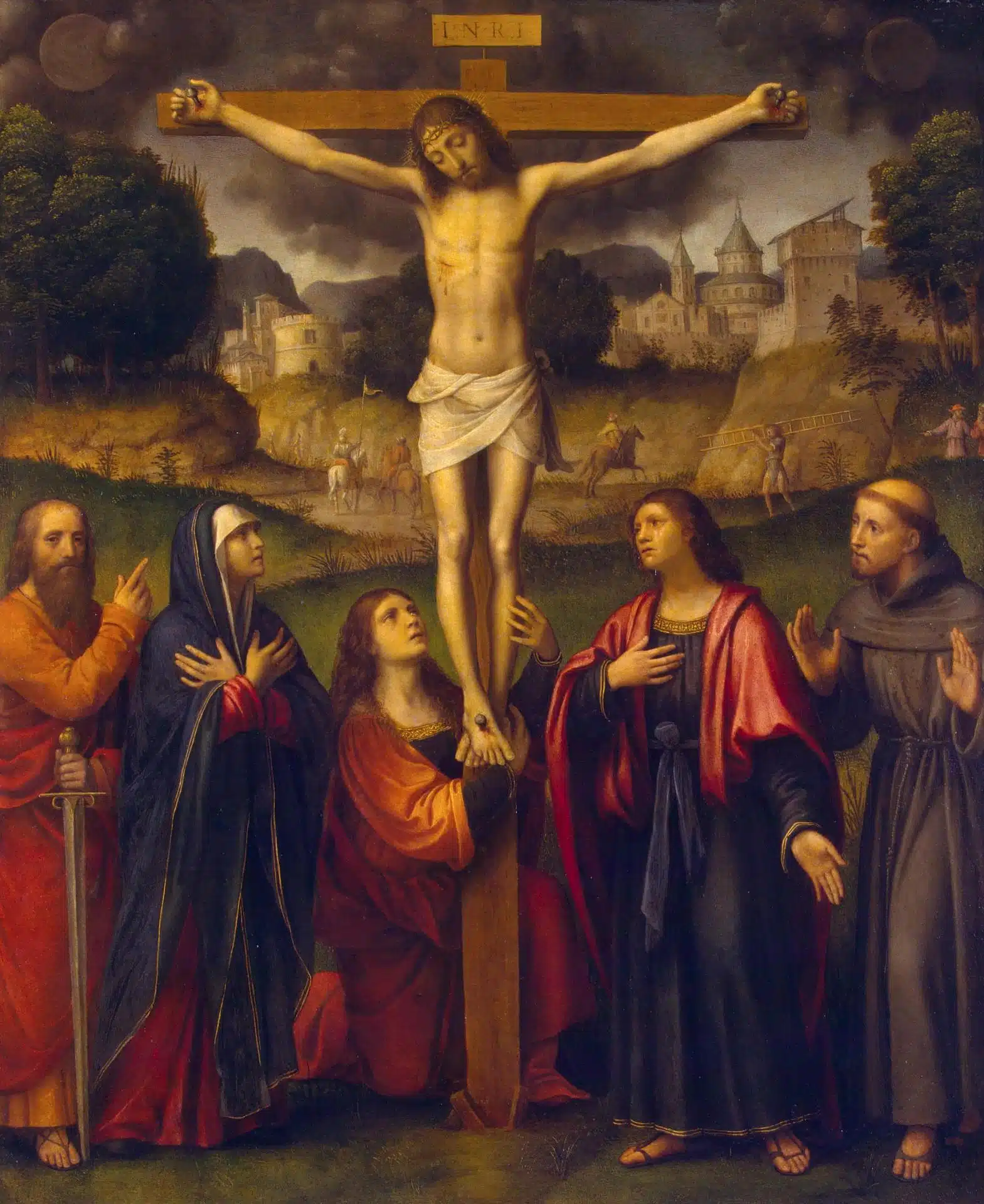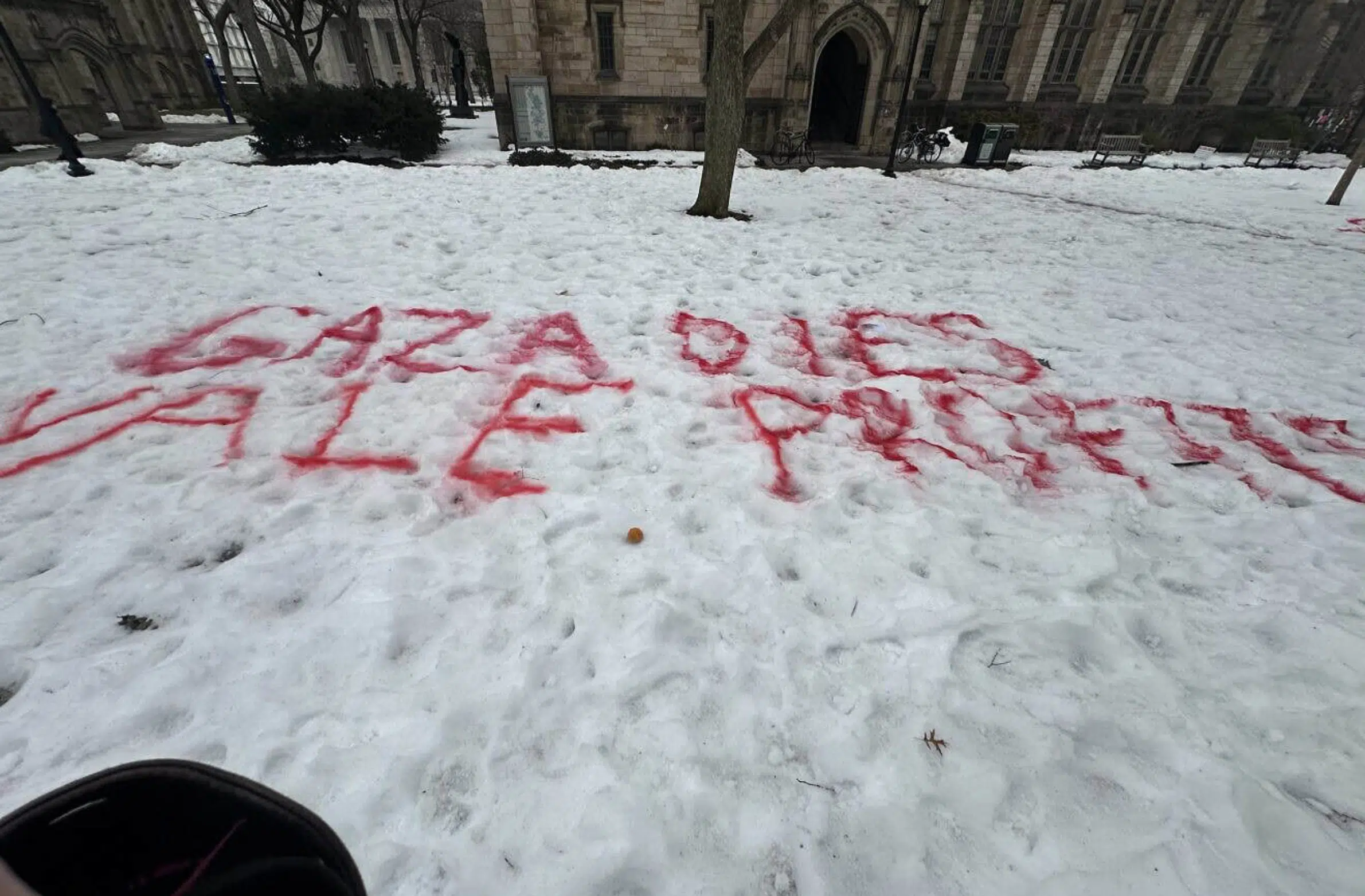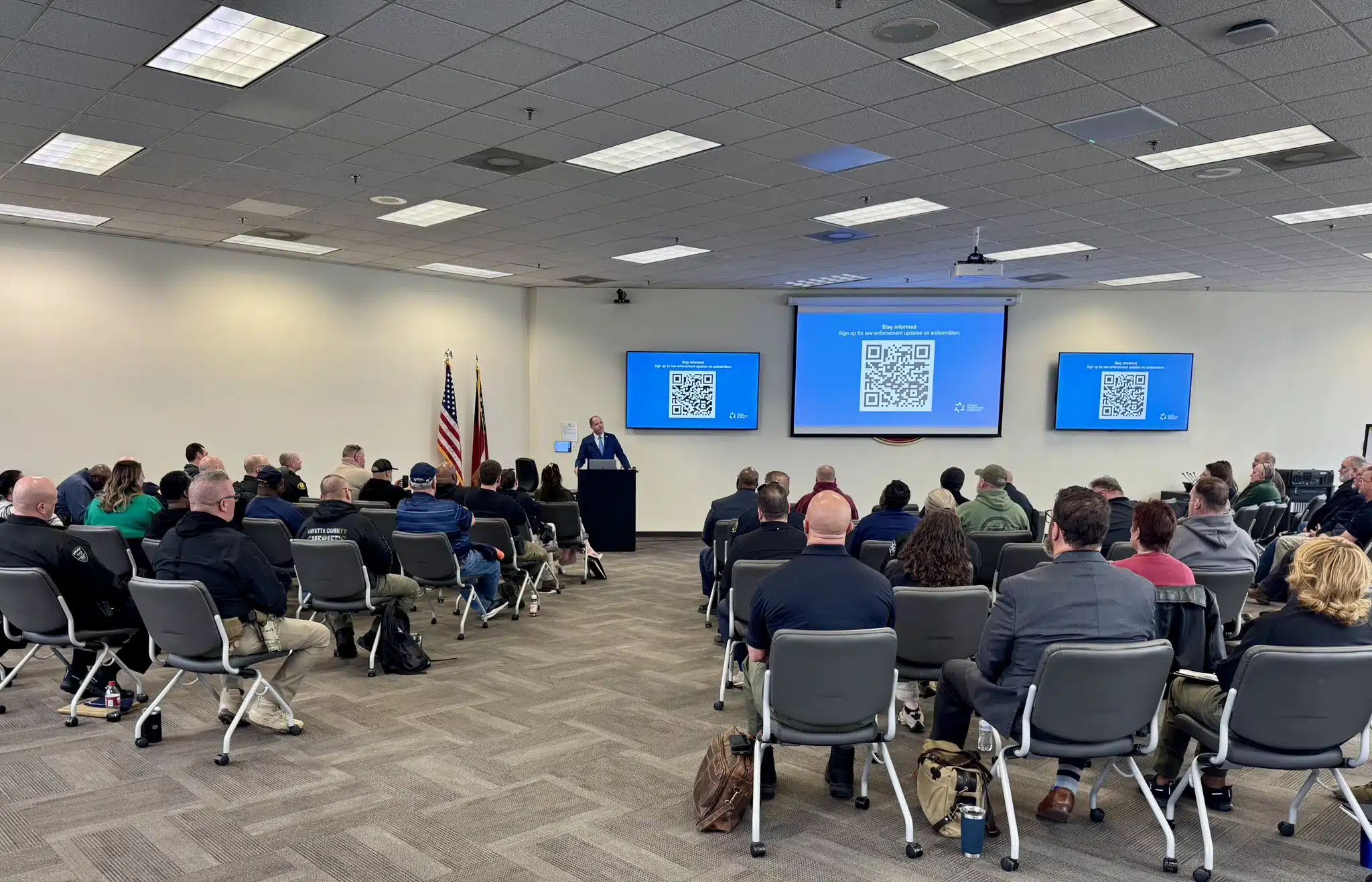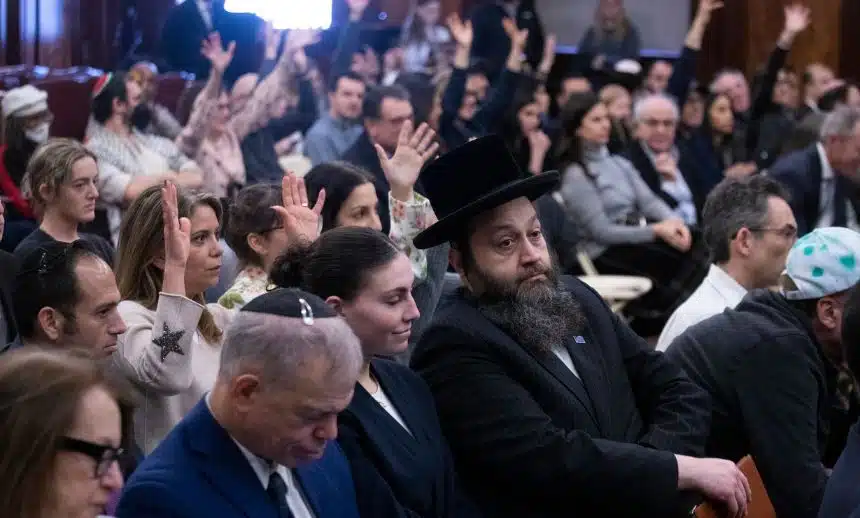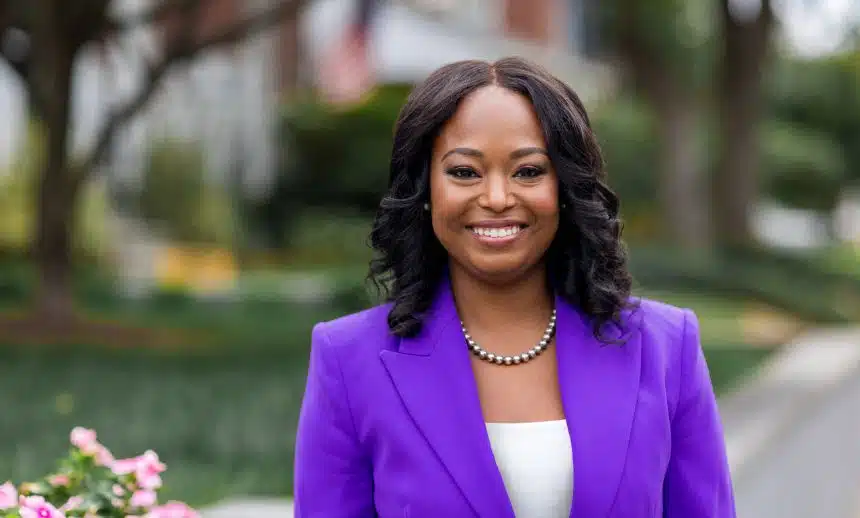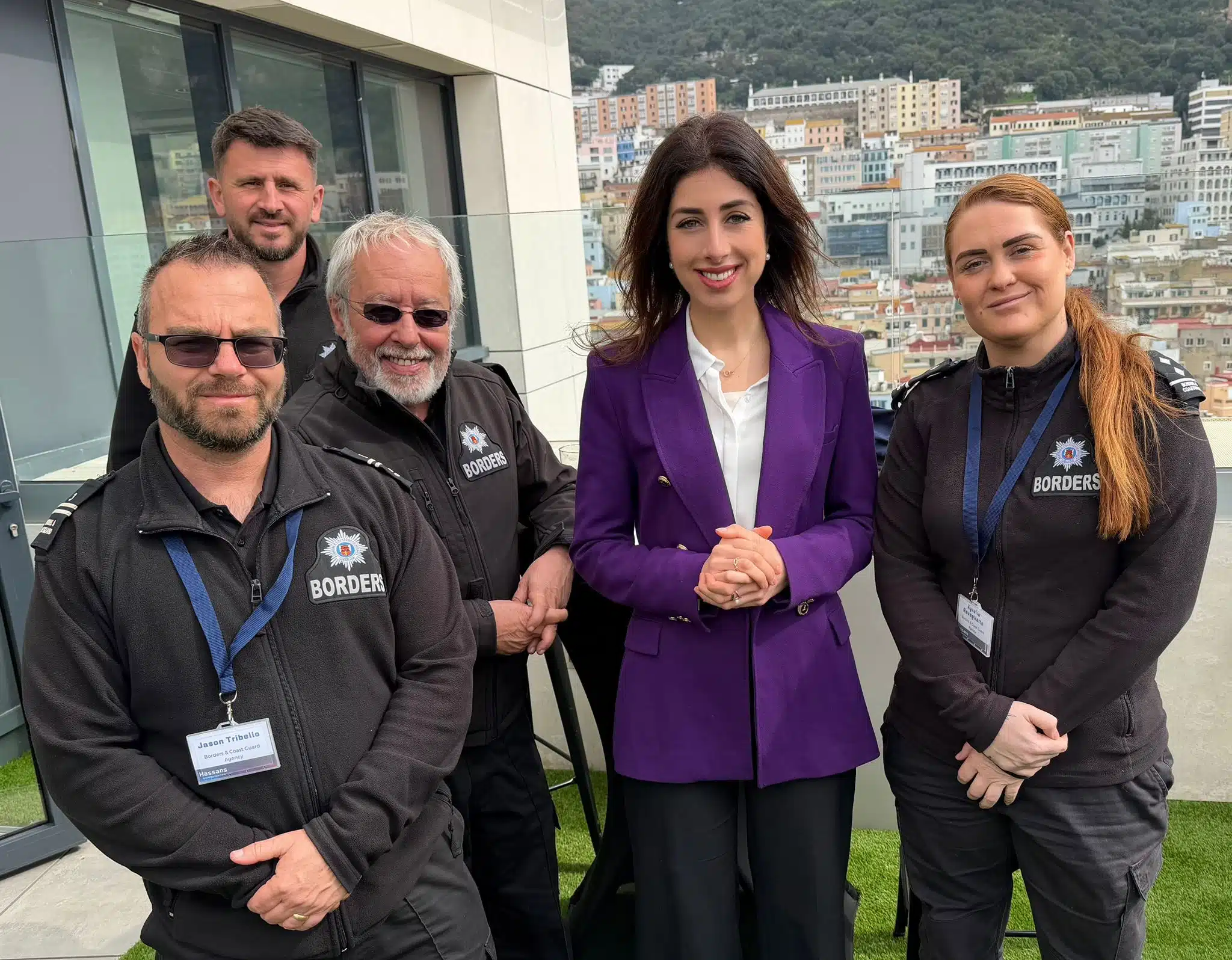|
Getting your Trinity Audio player ready...
|
This article was authored by Adi Rabinowitz Bedein, a third-generation Holocaust survivor from Israel, certified Yad Vashem tour guide, October 7th Burnt Vehicles Compound tour guide, and founding director of the Network for Innovative Holocaust Education (NIHE):
For generations, we have taught our children that Jerusalem was destroyed due to baseless hatred. Many now look at the tragedy of October 7 and see echoes of that lesson — how division within our people left us vulnerable. And yet, some still focus only on the small picture, blaming a specific leader or political decision, rather than seeing the broader threats we face — whether from Iran, extremist ideologies, or historical patterns we, as Jews, recognize all too well.
This tendency to shrink reality into a simple partisan debate is dangerous. Today, as Israel fights once more — not out of choice but out of necessity — we see voices attempting to divide the people: suggesting that those who support military action cannot also care about the hostages, or that all blame belongs to one leader alone. This limited perspective ignores the painful complexity of our reality and creates unnecessary division.
Holocaust remembrance must be more than an exercise in looking back. The Holocaust did not happen merely because of one leader — Hitler alone did not commit mass murder. It happened because of communities that were complicit, silent, or too divided to act. The lesson of history is that strength comes from unity. The power of a single person to do good or evil is great, but the power of a united community is even greater.
That is why, through Bedein Agents of Hope, I focus on strengthening communities worldwide, emphasizing what unites us. I speak to Christian audiences, building deep and meaningful connections by highlighting our shared values rather than our differences. Every interaction is an opportunity to bridge gaps and strengthen the collective. In times like these, we must ask ourselves: Is what I am doing bringing people together or tearing them apart? Not just — do I think it’s important — but does it contribute to unity?
One such moment of inspiration came during my recent journey through the Caribbean, where I had the privilege of meeting Rabbi Dr. Yehonatan Elazar Demota, a visionary spiritual leader committed to reviving the historic Spanish-Portuguese Jewish tradition. In our conversation, Rabbi Demota urged me to consider not only the painful echoes of our past but also the power of looking ahead. He spoke passionately about building a future rooted in heritage but directed toward healing and hope — reminding me that true leadership isn’t just about preserving memory, but casting a vision for what comes next. His perspective was a powerful reminder that unity isn’t only retrospective; it’s a proactive investment in the world we want to build.
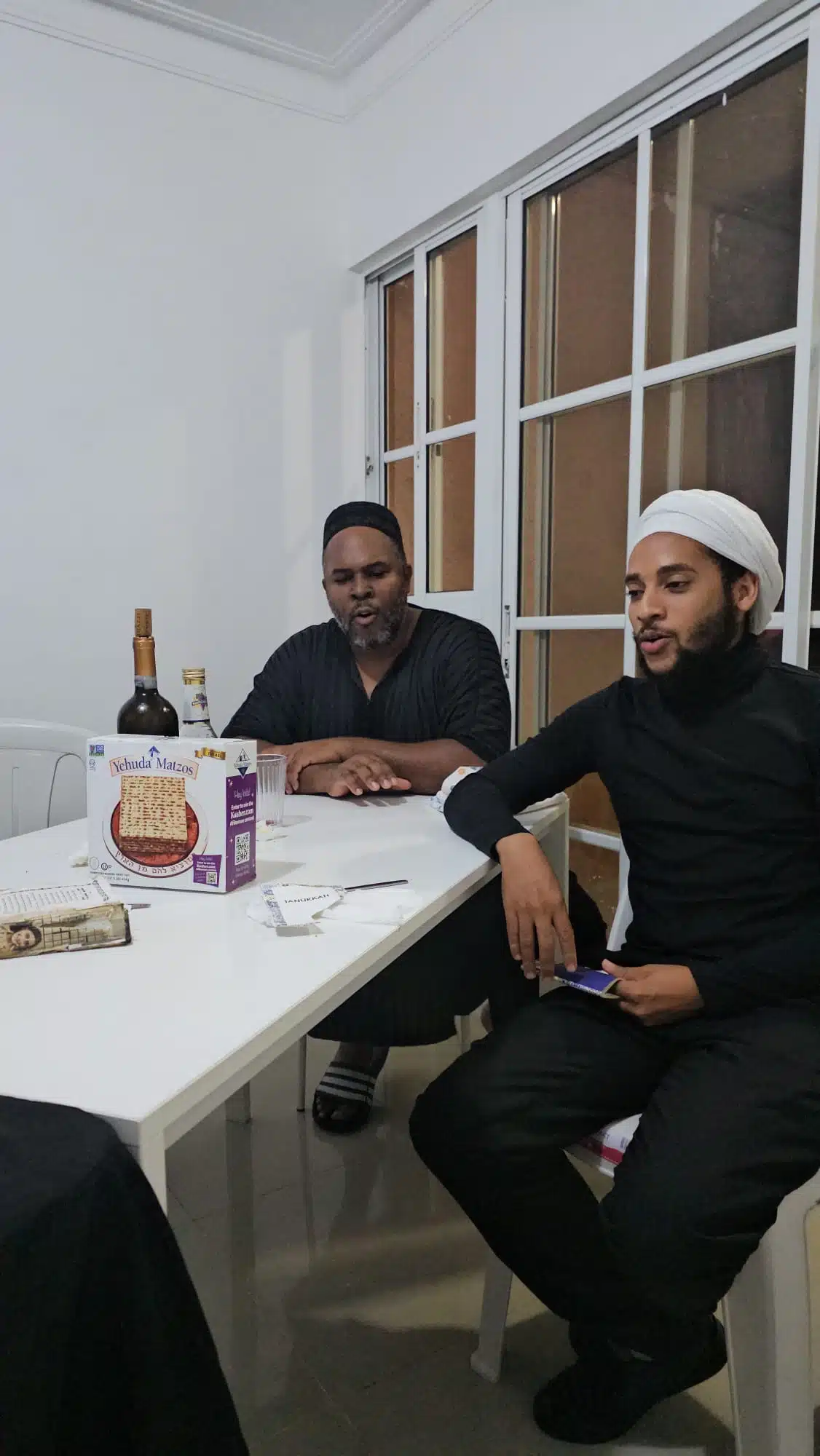
This belief also led me to establish the Network for Innovative Holocaust Education (NIHE). More than 200 educators from 28 countries have joined this community — not just as names on a list, but as people working together, learning from one another, and forging collaborations that make Holocaust education more relevant. I envisioned a space where every individual dedicated to Holocaust remembrance could be seen, valued, and supported — without political power struggles or ego-driven competition. And while I once worried this vision might sound naive, it is now a thriving, dynamic reality.
The power of our network is demonstrated through real collaborations that are transforming education:
- Alex Teplish, a Holocaust remembrance activist, technology innovator, and team leader with over 25 years of experience, teamed up with Hilary Levine, a veteran educator with a Master’s in Holocaust and Genocide Studies and 25 years of teaching experience. Together, they co-led a virtual presentation for teachers on the West Coast through Hilary’s organization. Some teachers began using Alex’s book and virtual museum in their classrooms. Hilary developed an entire lesson plan around those materials, and Alex supported her with grant writing. This collaboration continues to grow — Alex will be flying out in June to speak alongside Hilary at the USC Shoah Foundation conference.
- Rozalie Jerome, Founder and President of the Holocaust Remembrance Association and visionary behind the Holocaust Garden of Hope, is currently partnering with Luc Bernard, an expert in interactive design and gaming, to develop a new digital platform commemorating the 1.5 million children murdered in the Holocaust. This exciting collaboration is in progress, and through NIHE, it is already sparking meaningful dialogue about how to engage younger generations in remembrance through technology.
- Dina Kaufman, a Holocaust remembrance activist with ICEJ British Columbia, made another connection that demonstrates the heart of NIHE’s purpose: she introduced Deb Bowen, founder of A Book by Me, to a Holocaust survivor. That introduction allowed a student at a small Christian school in Illinois to write and preserve the survivor’s story, ensuring that personal testimony lives on through youth-driven storytelling and education.
These are only a few of the many powerful collaborations happening among members of NIHE. Behind each one is a shared purpose: to remember, to educate, and to act.
These are not just partnerships — they are stories of shared purpose, mutual respect, and a united vision. As Hilary recently shared: “I love NIHE and think it is amazing that so many of us have come together to make an impact.”
That is the key. In today’s world, we don’t just need lists of people — we need connections between people. We need action, cooperation, and the ability to see each other and work together.
On this Yom HaShoah, let’s ask ourselves: How can we make Holocaust remembrance more relevant and impactful? By strengthening our communities. By making sure individuals feel they belong and that their voices matter. By expanding our reach, welcoming new experts and perspectives — even those who may be less known.
The greatest force in Holocaust remembrance is not institutions, policies, or ceremonies. It is people. Individuals who choose to remember, to act, and to unite. Each of us holds power. The more we bring people in, the more relevant Holocaust education becomes. Let us honor the past by shaping a future built on unity, collaboration, and the unwavering commitment to stand together.


